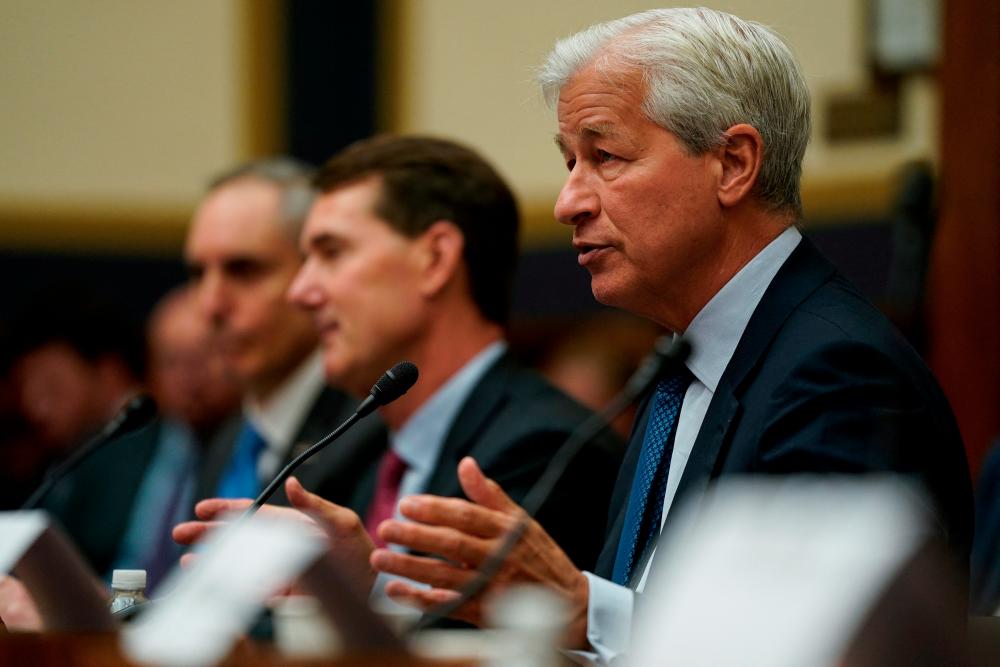NEW YORK: Higher interest rates and grinding inflation are likely to begin taking a higher toll on US consumers who have so far mostly managed to remain in healthy financial shape, bank CEOs told a congressional panel on Wednesday (Sept 21).
The heads of the largest US banks warned in particular that low-income households face duress, as they appeared at a lengthy hearing before the House Financial Services Committee ahead of the Federal Reserve's announcement of an interest rate hike of three-quarters of a point.
The line-up before the committee included CEOs of the four largest US banks: JPMorgan Chase & Co’s Jamie Dimon, Wells Fargo’s Charles Scharf, Bank of America’s Brian Moynihan and Citigroup’s Jane Fraser. They were joined by the CEOs of the country’s largest regional lenders, US Bancorp, PNC Financial and Truist.
“It’s early days still in terms of seeing the impact of high interest rates on the consumer in the States,” said Fraser. “Fortunately, they entered this period with pretty strong balance sheets.”
She warned of “greater stress” for consumers with low credit ratings, predicting a drop in savings rates and “tougher times ahead” in general.
Remarks on the economy were interspersed as bankers navigated politically charged questions on climate change, President Joe Biden’s regulatory policies, executive leadership diversity and other topics.
Andy Cecere, chief executive of US Bancorp, said that while savings rates remain above pre-pandemic levels, they have “stabilised” the last three months after growing consistently for the prior 18 months.
“The things that people are spending money on have changed substantially from discretionary to non-discretionary items like food and gas,” he told the panel.
“It’s appropriate that we’re very focused on inflation, because again, it is most harmful for those who afford it the least.”
Dimon said American consumers are in “rather good shape” with low debt levels in a strong jobs market.
But he said the economy faces an uncertain course, with only a “small chance” of a soft landing to the Fed’s monetary tightening policy.
Dimon said there was also a chance of a “mild recession” as well as a “harder recession, noting that in light of the war in Ukraine and the drag on food and energy supply, “there’s a chance it could be worse”.
“And I think policy makers should be prepared for the worst,” he added.
In a separate development, three major US banks said on Wednesday they will increase their prime lending rates by 75 basis points, bringing the rates to their highest since the global financial crisis of 2008.
JPMorgan Chase, Citigroup and Wells Fargo said the new rates would take effect today (Sept 22).
An increase in interest rates typically boosts banks' profitability, since they can earn more net interest income – a metric that gauges the difference between the money banks earn on loans and pay out on deposits.
However, too high interest rates can tip the economy over into a recession and squeeze consumer demand for loans, which can ultimately hurt lenders.
“Higher interest rates are going to lead to a slowdown in both consumer borrowing as well as corporate borrowing,“ said Lance Roberts, chief investment strategist and economist at RIA Advisors.
“This is going to impact economic growth to a great degree as we move further into 2023,” he added. – AFP, Reuters










